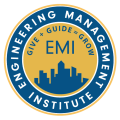It’s pretty standard fare here on TECC to espouse the benefits of setting goals. The reason we come back to goal setting over and over is because it works. Goals:
- Define a future intended situation.
- Focus resource application.
- Highlight what is important.
- Can help bring what we want most in life into reality.
Goals can be great, but for some people they can be useless. Not everyone operates according to goals and it’s only been in the past few months that I’ve come to realize this. It’s not that goals don’t accomplish the items listed, they simply don’t inspire.
And for some people, goals can actually keep them from achieving what they want.
The reason is that the goal – especially if it’s of the big, audacious type – can become intimidating. In these situations, instead of putting one’s head down and pushing through, the shields go up in a defensive measure to keep the intimidating work away. Procrastination, stress, and a lot of other negative coping mechanisms kick in.
Not the best way to move forward in one’s career or achieve the level of personal success sought.
Operating By A Theme
If you find yourself a bit intimidated by goals, or that they simply don’t work for you, try operating by a theme instead. With goal setting, one typically sets a vision and then identifies a list of supporting goals that are specific, measurable, actionable, relevant, and time bound. Operating by a theme, on the other hand, involves identifying the relevant activities that will contribute to one’s vision, and using that to vet what actions are taken and what work one does.
It looks like this: suppose you have a vision of being the top expert in critical infrastructure protection for coastal regions. If you are a goal setter, some goals might include earning your P.E. and/or obtaining your required PDHs on related topics; attending 3 technical conferences per year on critical infrastructure protection and coastal engineering; and publishing an article in a trade journal quarterly. Ambitious and well-focused goals.
For the theme operator, however, it looks like this: they have a vision of being a top expert in critical infrastructure protection for coastal regions. Instead of setting specific goals related to PDHs, conference attendance and publishing, they simply highlight these as themed areas they intend to invest time and energy. No specificity, no time binding. Just a relevant topic area and away they go. Instead of being the expert, they are interested in being a expert.
If you choose to operate in this fashion, it doesn’t mean that you’re unmotivated, lazy, or lack commitment. It does mean that you’re leaving yourself maneuver space in which you can you pivot direction or pursue emerging opportunities. In short, you’re allowing yourself flexibility.
The main downside of goals is this: they can make you so myopic that you lose the ability to see new opportunities. You becomes so invested in achieving your goal, that you lose sight of the forest as you zero-in on the tree. What happens when a better opportunity — one that moves you towards your vision sooner and with less work — exists, but you’re too focused on the goal that you miss it?
Besides opening oneself up for new opportunities and new paths towards one’s vision, operating with a theme can be a lot less stressful. What is the stress level invited on oneself between being the expert versus a expert? A hell of a lot for a distinction that’s hard to truly define and is fleeting at best.
“Your theme is the general vision for the rest of your life.” J.D. Yoder







